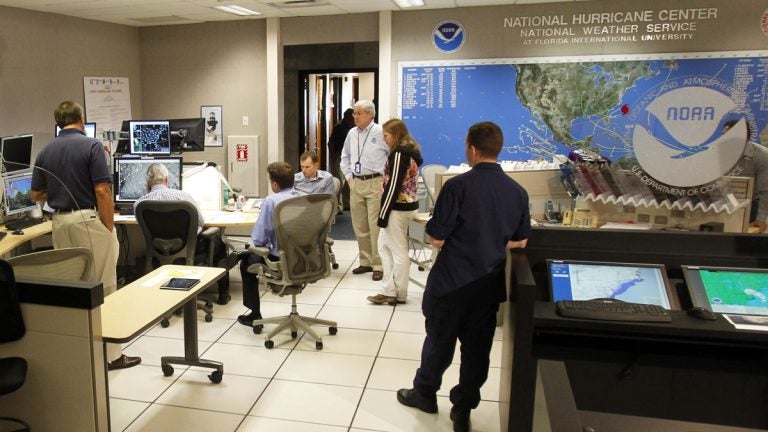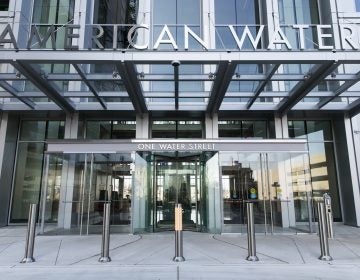Federal judge halts NJ beach grab in Margate

This October 2012 photo shows a boarded-up home in Margate N.J. (Joseph Kaczmarek/AP Photo)
The city of Margate, New Jersey, has won a temporary victory in its fight to hold off a multimillion-dollar dune construction plan backed by Gov. Chris Christie.
Christie’s administration has been pushing an initiative to line 127 miles of beachfront with dunes to protect Shore towns from storms like Hurricane Sandy. Officials have said they believe they have the authority to seize the necessary land without court approval.
But residents of Margate have twice voted to reject the plan in local referendums, preferring to rely on their existing system of concrete bulkheads. Last month, Margate officials sued the state to halt the dune project.
Thursday, the two sides met in federal court, where U.S. District Judge Renee Bumb advised state officials to bring their land claims to state court, where the land could be formally condemned. In so doing, she extended a temporary restraining order that keeps the dune project on hold.
The two parties will meet again in Bumb’s courtroom later this month.
Among those who’ll be watching is Tim Dillingham, an environmental advocate and head of the American Littoral Society. He saw Thursday’s decision as a setback for the Christie administration’s plans.
“The court seemed to say to the state, ‘You have to go back and make this a two-sided conversation at the very least,'” Dillingham said. “It’s not simply a matter of the state being able to impose its vision on the towns.”
State officials have argued that leaving Margate out of the dune project would leave nearby towns vulnerable to future storms. The delay will drive the project’s costs up significantly, they said.
Margate officials said they’d prefer to work with the state to develop an alternative plan.
As an environmental matter, Dillingham said, dunes are generally more effective than bulkheads in protecting beaches. A lack of dunes in Margate could easily have negative consequences for neighboring towns, he said.
But he cautioned that dunes are no panacea, either.
“Dunes often will protect the houses during a storm, but get washed away as a consequence of the storm,” he said. “So it’s a constant process of rebuilding the beaches, rebuilding the dune systems, which is very expensive over the long run … you can never solve the problem permanently.”
WHYY is your source for fact-based, in-depth journalism and information. As a nonprofit organization, we rely on financial support from readers like you. Please give today.




